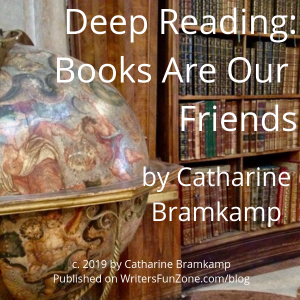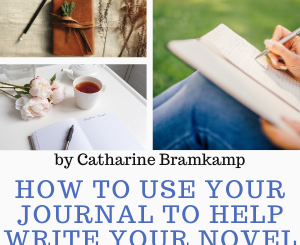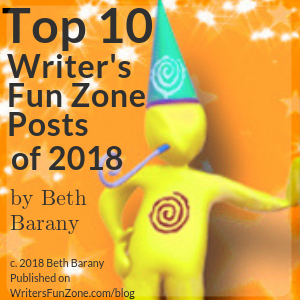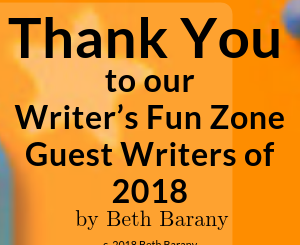Deep Reading: Books Are Our Friends by Catharine Bramkamp
 Let’s welcome back monthly columnist Catharine Bramkamp as she shares with us: “Deep Reading: Books Are Our Friends.” Enjoy!
Let’s welcome back monthly columnist Catharine Bramkamp as she shares with us: “Deep Reading: Books Are Our Friends.” Enjoy!
***
We settle into our regular cafe and flip open our iPad fully intending to read the recently downloaded .99-cent BookBub special, The Social Construction of Reality. Three seconds later we’ve defaulted to another episode of “Living Big in a Tiny House.” Me. Yesterday.
It’s no surprise that as information consumers we increasingly choose easy over challenging.
We don’t investigate, we don’t learn, we abandon difficult books a minute and a half after graduating from college. Or we intend to read, to attempt the deep reading experience (because it’s new and there was an article about it on Huffington Post) but we didn’t read much past the introduction. Fortunately, many of our recently abandoned books look great on the living room bookshelf.
We, as writers and artists, need to return to reading material that requires a bit more effort than watching cute cat videos. Okay, a lot more effort. Why?
Deep Reading
Because the satisfaction of learning something new, of deep reading on a fascinating subject is fulfilling.
The work of it is not only good for our heads, it is good for our souls.
There are many brain-related benefits to deep reading: today’s benefit is how deep, mindful, focused reading will lead you to a life-changing passion that is so compelling, slogging through a thick book with “reality” in the title won’t seem daunting at all.
How do you access the bigger more interesting stuff of the world? How do you think deeper thoughts and make intriguing, robust connections that will contribute to an infrastructure of knowledge and wisdom that you can stand on? No wobbling, no indecision.
How do you find your next favorite subject/passion/obsession?
Let’s start with a Google search. Or for extreme novelty, investigate your subject at the local library.
From the list on Google, delete the paid posts. Now scrutinize the web addresses and links attached the next three or four search suggestions. Are they genuine or click bait? Yeah, keep going. You are looking for academic sources. (Google Scholar may be next on your list.) You are searching for websites and information and books created by authors with either experience or solid research.
A surprise first stop in your passion research is Wikipedia. Historically, Wikipedia had been reviled in the academic world because it’s crowd sourced information. Then again, so was the OED, so we may be a little too judgmental here. Wikipedia has improved, so even though it’s still not a resource you’d want to list on the final pages of a dissertation or thesis, it is a great place for an overview of your passion subject.
Read the Wikipedia posts. Click on the leads and references. Instead of cute animal videos, you use an hour following subjects and ideas. What is related? What caught your attention?
Go there.
DEEPER SOURCES FOR DEEP READING
Eventually you’ll find books and white papers and deeper sources. That’s the good news. Read online, or find books that cover the material of interest. Reserve those books at the library, put them on your growing Amazon wish list. Or just buy them. Today.
Once you have this new, wonderful book in your possession, are you going to read it deep into the night? You are not. A book is very much like the gym. Or to belabor that metaphor, a marathon.
Read the book in short spurts. Even if you just read the short introduction to a rather lengthy tome, great. You started. Don’t quit. Read a little more then next day. Read over lunch. Read after dinner. You get the idea. Allow yourself to get obsessed by the book and the experience of such a deep subject dive. Once you’ve experienced that immersion, you’ll want to recreate it over and over.
KEEP TRACK OF YOUR DEEP READING EXPERIENCE
Keep track of your book reading progress. A list of read books is fun, plus if you include all your read books, you now know if you’ve already read the first book in that intriguing mystery series by Catharine Bramkamp and are now ready for the second book.
I read history books based on my passion for art after the Great War, as well as books reflecting my travels, or books about travelers. I also read fun mysteries, I also read weird fantasy novels sent by my son who is also determined to expand my knowledge base.
We can become crazy paranoid and claim that the powers that be, the men in charge, encourage the bulk of the population to be distracted and absorbed by the trivial the old “look over there” technique of distraction and deception. Humans have always been excited and entertained by hysterical and trivial news because that’s what our lizard brains respond to. Don’t be that lizard.
DEEP READING LEADS TO DEEP THINKING
Study, focus, and deep reading will actually move you from the typical, the complaint, certainly away from the hysterical and to a space of thinking, considering, reasoning and even rebellion. Deep understanding and evidence based questions are anathema to the shallow and popular — to the distraction.
Where does a diet of artificial outrage get you?
Fat and distracted.
Be different, rebel.
Order a nonfat latte and open a fat book. You’ll be the most suspicious person in Starbucks.
***
ABOUT THE AUTHOR
 Catharine Bramkamp is the co-producer of Newbie Writers Podcast that focuses on newer writers and their concerns. She is a successful writing coach, Chief Storytelling Officer, and author of a dozen books including the Real Estate Diva Mysteries series, and The Future Girls series. She holds two degrees in English and is an adjunct university professor. After fracturing her wrist, she has figured out there is very little she is able to do with one hand tied behind her back.
Catharine Bramkamp is the co-producer of Newbie Writers Podcast that focuses on newer writers and their concerns. She is a successful writing coach, Chief Storytelling Officer, and author of a dozen books including the Real Estate Diva Mysteries series, and The Future Girls series. She holds two degrees in English and is an adjunct university professor. After fracturing her wrist, she has figured out there is very little she is able to do with one hand tied behind her back.






